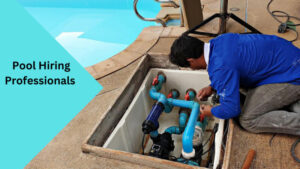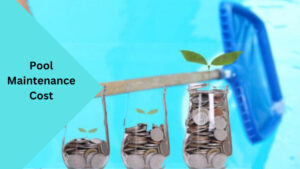When it comes to owning a pool, maintenance is a crucial aspect that ensures its longevity, cleanliness, and the overall enjoyment of your swimming experience. However, many pool owners often wonder, “How much does pool maintenance cost?” In this comprehensive guide, we will delve into the factors that affect pool maintenance costs, provide average costs for different scenarios, explore the benefits of professional maintenance, and offer tips to reduce expenses.
Whether you have an above ground pool in Raleigh, NC, or a larger swimming pool anywhere else, this article will equip you with the knowledge to make informed decisions regarding your pool’s upkeep.
Factors Affecting Pool Maintenance Costs
The cost of pool maintenance can vary greatly, depending on multiple factors. These factors include:
-
Size and Type of Pool
The size and type of pool you own play a significant role in determining maintenance costs. Larger pools require more chemicals, water, and cleaning supplies. Additionally, the complexity of maintaining certain pool types, such as saltwater pools or infinity pools, can impact costs.
-
Location and Climate
Where your pool is located and the climate it is subjected to can influence maintenance costs. If you reside in an area with extreme temperatures, high humidity, or heavy rainfall, you may need to invest more in pool maintenance to combat these environmental conditions.
-
Frequency and Extent of Use
The frequency and extent of pool usage affect the maintenance requirements and costs. Pools that are frequently used may require more frequent cleaning, water testing, and chemical adjustments. Similarly, pools used for parties or events may demand extra maintenance efforts.
-
Additional Features and Accessories
The presence of additional features and accessories, such as waterfalls, fountains, or special lighting, will impact the maintenance costs. These features often require specialized care and maintenance to ensure their proper functioning and longevity.
To explore more details and considerations regarding pool maintenance, our comprehensive guide on 10 Swimming Pool Maintenance Tips has you covered.
Average Cost of Pool Maintenance
The average cost of pool maintenance can vary depending on the factors mentioned earlier. Let’s explore the typical costs involved in different scenarios:
-
Per Month
On average, monthly pool maintenance costs range from $75 to $200. This includes routine tasks such as cleaning, skimming, water testing, chemical adjustments, and basic equipment inspections. However, additional costs may apply if any repairs or specialized treatments are needed.
-
Raleigh, NC
In Raleigh, NC, the average monthly pool maintenance cost is between $80 and $150. The specific climate and demands of the region influence the cost slightly higher than the national average.
-
Swimming Pool
The average annual cost of maintaining a swimming pool varies from $500 to $1,500. This covers routine maintenance, occasional repairs, filter replacements, and winterizing costs.
-
Above Ground Pool
Maintaining an above ground pool costs around $150 to $300 per year. Since these pools are generally smaller and simpler in design compared to in-ground pools, they tend to have lower maintenance expenses.
DIY vs Professional Pool Maintenance

When it comes to pool maintenance, you have the option to tackle it yourself (DIY) or hire professional services. Let’s weigh the pros and cons of each approach:
Pros and Cons of DIY
Pros:
- Potential cost savings if you have the time and expertise
- Direct control over the maintenance process
- Sense of accomplishment and satisfaction
Cons:
- Time-consuming, especially for larger or complex pools
- Potential for errors or inadequate maintenance
- Lack of professional knowledge and equipment
Benefits of Hiring Professionals
-
Expertise and Efficiency:
Professional pool maintenance services have the knowledge, experience, and tools to efficiently keep your pool in optimal condition. They can identify and resolve issues before they become major problems, saving you time and potential costly repairs.
-
Proper Chemical Balance:
Maintaining the right chemical balance in your pool is crucial for water safety and longevity. Professionals have the expertise to test and adjust chemical levels accurately, ensuring a healthy swimming environment.
-
Comprehensive Services:
Professional pool maintenance often includes a wide range of services such as equipment inspections, repairs, and winterization. They can handle all aspects of pool care, allowing you to enjoy your pool without the hassle.
Essential Pool Maintenance Tasks
To maintain a clean and well-functioning pool, certain tasks should be performed regularly. These include:
-
Regular Cleaning and Skimming
Cleaning your pool by skimming the surface, vacuuming the pool floor, and brushing the walls prevents debris build-up and enhances water clarity. Regular cleaning also minimizes the risk of algae and bacteria growth.
-
Water Testing and Balancing
Testing the water regularly helps maintain proper chemical balance, pH levels, and sanitizer effectiveness. Adjusting these levels as needed ensures safe and comfortable swimming conditions.
-
Equipment Inspections and Repairs
Periodically inspecting and maintaining your pool equipment, such as pumps, filters, and heaters, helps prevent breakdowns and promotes efficient operation. Timely repairs or replacements can save you from costly repairs down the line.
-
Pool Cover Maintenance
If you have a pool cover, proper care and maintenance are essential to prolong its lifespan. Regularly cleaning, inspecting for damage, and storing it correctly when not in use will ensure its effectiveness and longevity.
Tips to Reduce Pool Maintenance Costs
While pool maintenance is a necessary expense, implementing these tips can help reduce the overall costs:
-
Regular Maintenance and Cleaning
Consistent and proactive maintenance, including regular cleaning, skimming, and chemical adjustments, prevents the accumulation of debris, algae, and chemical imbalances. This reduces the need for extensive and costly corrective measures.
-
Using Pool Covers
Investing in a pool cover can significantly reduce maintenance costs. Pool covers minimize evaporation, preserve chemical balance, and prevent debris from entering the pool. This results in less frequent cleaning, chemical usage, and water refilling.
-
Energy-Efficient Equipment
Opting for energy-efficient pool equipment, such as variable-speed pumps and LED lighting, can help reduce long-term operational costs. These upgrades consume less energy, resulting in lower utility bills while providing sufficient pool circulation and lighting.
-
Proper Chemical Usage
Avoiding overuse or underuse of pool chemicals is crucial in maintaining water balance. Follow manufacturer guidelines and consult professionals for accurate chemical measurements and adjustments. This prevents excessive waste and additional expenses.
Importance of Regular Pool Maintenance
Regular pool maintenance is essential for several reasons:
-
Preventing Costly Repairs
By investing in routine maintenance, you can detect minor issues early on and prevent them from becoming major and more expensive problems. Timely repairs and replacements of equipment and parts can save you significant expenses in the long run.
-
Ensuring Water Safety
Maintaining proper chemical balance and cleanliness ensures the water in your pool remains safe and free from harmful bacteria and contaminants. This promotes the health and well-being of swimmers, reducing the risk of illnesses or infections.
-
Extending Pool Lifespan
Regular maintenance, including proper water chemistry, cleaning, and equipment care, helps extend the lifespan of your pool. By preventing deterioration, minimizing leaks, and addressing maintenance needs promptly, you can enjoy your pool for many years to come.
To explore more details and considerations regarding to maintain, our comprehensive guide on How to Maintain a Gunite Pool has you covered.
Conclusion
Now that you have a comprehensive understanding of the factors affecting pool maintenance costs, you can confidently assess the expenses involved in owning and maintaining a pool. Remember, the cost of pool maintenance varies based on factors such as location, pool type, size, additional features, and frequency of professional services.
By implementing cost-saving tips and regular maintenance routines, you can enjoy a well-maintained pool without breaking the bank. So go ahead, dive into the world of pool ownership, and make a splash without compromising your budget.

Greetings, fellow pool enthusiasts! I’m Turner Davis, your dedicated guide to the world of pool care and maintenance. With over a decade of experience in the field, I’ve made it my mission to transform ordinary pools into extraordinary aquatic retreats.

